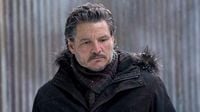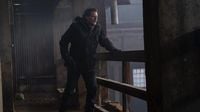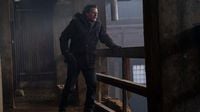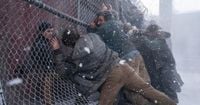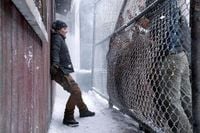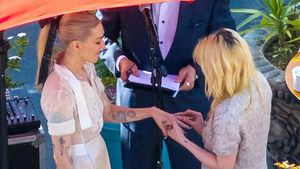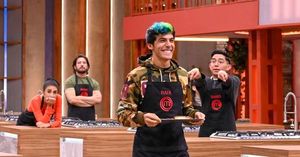The Last of Us Season 2, Episode 2, titled "Through the Valley," delivers a harrowing narrative that intertwines the brutal death of Joel Miller with the desperate fight for survival in Jackson, Wyoming. The episode opens with a haunting nightmare experienced by Abby, played by Kaitlyn Dever, who is haunted by the memories of her father, the doctor killed by Joel (Pedro Pascal) in a past encounter. This flashback sets the stage for the inevitable confrontation that unfolds throughout the episode.
As the episode progresses, the tension builds with the revelation that a patrol has been ambushed by a horde of Infected living beneath the snow, using the corpses of their fallen comrades as insulation. This grim news is delivered by Jesse (Young Mazino) to Ellie (Bella Ramsey), who is eager to join Joel on patrol, only to find that he is already out with Dina (Isabela Merced). The separation of Ellie from Joel adds a layer of emotional weight, as she reassures Jesse, "I'm still me, he's still Joel, and nothing's ever gonna change that. Ever." Little does she know, their time together is rapidly running out.
Meanwhile, Abby's path converges with Joel's as she spots him and Dina while on patrol. The atmosphere is thick with dread as a blizzard begins to brew over Jackson, cutting off communication and isolating the characters just as the Infected begin their assault. The episode cleverly crosscuts between the chaos in Jackson and Abby's relentless pursuit of revenge, building a sense of impending doom.
When Abby inadvertently awakens an avalanche of Infected, the horror escalates. The scene is a visual spectacle, reminiscent of epic battles in shows like Game of Thrones, as the Infected storm the fortified walls of Jackson. The residents, including Joel's brother Tommy (Gabriel Luna) and his wife Maria (Rutina Wesley), engage in a desperate fight for survival, employing medieval tactics such as flamethrowers against the relentless horde.
However, amidst this battle, the real emotional core of the episode lies in the confrontation between Abby and Joel. After a series of harrowing events, including Abby being trapped under a fence while the Infected close in, she finally comes face-to-face with Joel. The tension reaches its peak when Abby reveals her identity as the daughter of the doctor Joel killed, and the confrontation turns violent.
In a brutal and agonizing sequence, Abby tortures Joel, ultimately delivering the fatal blow with a golf club, a weapon that symbolizes the culmination of her years of rage and vengeance. As Ellie arrives just in time to witness the horror, she is pinned down, helplessly screaming for Abby to stop, but the damage is done. Joel's death is a devastating moment, not just for him but for Ellie, who loses the only parental figure she has ever known.
The aftermath of Joel's murder leaves a profound impact on Ellie, setting her on a path of vengeance that will define the remainder of the season. The episode concludes with Ellie crawling over to Joel's lifeless body, their unresolved issues now forever lost. The stark contrast of the battle for Jackson, where the community fights against the Infected, highlights the duality of survival against both external and internal demons.
As the dust settles, the emotional fallout from Joel's death reverberates through the narrative. The Last of Us, in this episode, explores themes of loss, revenge, and the cyclical nature of violence, encapsulated in the phrase "hurt people hurt people." The episode not only serves as a pivotal moment in the series but also sets the stage for the complex moral dilemmas that lie ahead.
In a world ravaged by trauma and loss, the characters are forced to navigate their grief and rage, ultimately questioning the very nature of humanity in the face of overwhelming despair. As viewers, we are left to ponder the consequences of Joel's actions and the path Ellie must now tread, one marked by vengeance and the haunting memories of what once was.

